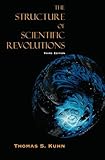In physics, this usually turns out to be people younger than 26, often through seminal PhD theses. But not always. Sometimes people dabble in secondary fields at older ages and come up with significant breakthroughs, like Linus Pauling (http://en.wikipedia.org/wiki/Linus_Pauling).
I'm not sure what I think about this regarding entrepreneurship. It seems that very successful entrepreneurs are not always coming up with revolutionary thinking, but instead executing well and paying attention to small details that make things work where they haven't before. As such, the age indoctrination barrier may not be as present as it is in physics. But of course there are the risk and drive barriers--people get settled and less willing to take risks and go through the arduous process of starting something new later in life.


Granted, if I wanted to learn about the moon, or rockets specifically I'd want the most up to date text I could find, but if that was all I read I'd end up learning less about science itself.
Of course, if the book is simply a chronology of events there's merit in expanding its range.
I don't know if the target audience being children makes this a non-issue, or an even bigger issue?
(And yes, I'm aware of and obsessed with this book - http://www.amazon.com/Structure-Scientific-Revolutions-Thoma... :-) )